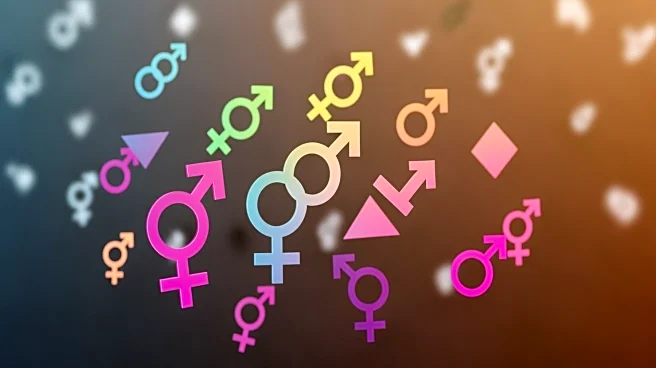What's Happening?
The European Union has introduced proposals that would allow individuals, including children, to self-identify their gender without age restrictions or medical requirements. This initiative is part of the EU's 'LGBTIQ+ Equality Strategy 2026-2030,' which
aims to standardize legal gender recognition across member states. The proposal suggests that individuals can change their legal gender by declaration alone, impacting official identification documents and services. The strategy also includes potential penalties for member states that resist these changes, such as blocking funds from regions deemed discriminatory. Currently, only nine of the EU's 27 member states permit self-identification, while 12 require medical procedures for legal gender change.
Why It's Important?
The EU's proposal is significant as it represents a shift towards prioritizing gender identity over sex-based equality, which has raised concerns among women's rights groups. Critics argue that the focus on gender identity could undermine existing protections for women and same-sex individuals. The proposal has sparked debate about the balance between individual rights and societal norms, with some campaigners fearing that it could lead to the erosion of sex-based rights. The strategy's potential to penalize non-compliant member states highlights the EU's commitment to enforcing uniformity in gender recognition laws, which could influence national policies and legal frameworks across Europe.
What's Next?
The proposals are awaiting approval from national governments, and if implemented, could lead to significant changes in how gender is legally recognized across the EU. Member states that oppose the shift from sex-based to gender-based equality may face legal challenges in the European Court of Justice. The strategy could also prompt discussions and potential reforms in countries outside the EU, such as the United Kingdom, where sex-based rights campaigners have expressed concerns about the implications of these measures. The ongoing debate may influence future EU policies and the broader discourse on gender identity and rights.
Beyond the Headlines
The EU's proposal raises ethical and legal questions about the rights of children to self-identify their gender and the role of medical professionals in gender transition processes. It also highlights cultural tensions between traditional views on gender and progressive movements advocating for gender fluidity. The strategy's emphasis on penalizing non-compliant regions underscores the EU's approach to enforcing human rights standards, which could lead to long-term shifts in societal attitudes towards gender identity.


















